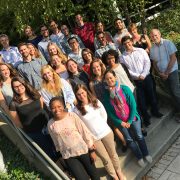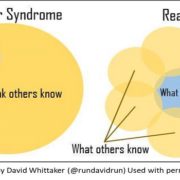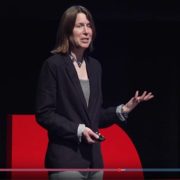
Plant scientists call for renewed focus on empowerment of trainees
Blog, Careers, Careers - Blog, Education, Education General, Mentoring, Plant Science Research Network, Skills and Advice, Work-Life Balance, Workplace DiversityPreparing graduate students and postdocs for diverse careers
Changes in the workforce are challenging academia to prepare scientists to be adaptable and adept at communicating across boundaries. To meet these demands, the Plant Science Research Network (PSRN, plantae.org/PSRN) is shifting the focus…

Images for Impact – How-to tips. Created for the Plantae Seminar Series
Blog, Careers, Careers - Blog, Education, Education General, Science Communication, Skills and Advice, Writing/Reviewing/Publishing/Communicating
Earlier this year I gave a Plantae seminar on "Images for Impact" - simple, free tips about how to source and create images to use in your science writing and communicating.
Here is the text of the handout I created to accompany the seminar. You can get this as a PDF here. You can download the…

Ten simple rules for writing a response to reviewers
Blog, Careers, Careers - Blog, Skills and Advice, Writing/Reviewing/Publishing/CommunicatingAnother excellent entry in PLOS Computational Biology's "Ten Simple Rules" series.
Read "Ten simple rules for writing a response to reviewers" here.
Short version:
Rule 1: Provide an overview, then quote the full set of reviews
Rule 2: Be polite and respectful of all reviewers
Rule 3: Accept…

How Academics Survive the Writing Grind: Some Anecdotal Advice
Skills and Advice, Writing/Reviewing/Publishing/CommunicatingWords of Wisdom from Those Who Publish (and Do Not Perish)
By Helen Sword
A PhD student approached me after a writing workshop to recount his tale of woe. “I write these messy, incoherent first drafts,” he lamented. “They’re absolutely awful! Then I have to work on them for hours and hours…

Twelve easy steps to embrace or avoid scientific petrification by Stephen Campana
Blog, Careers, Careers - Blog, Skills and AdviceLooking back on his 40-year career gives author Stephen Campana the opportunity to distill very useful career advice.
Very briefly, here are his 12 steps, but we recommend you real all of this interesting and useful article, found here, from the ICES Journal of Marine Science.
Read, read, read
…

Combatting the Impostor Syndrome in academic science – you probably are as smart as they think!
Blog, Careers, Careers - Blog, Mentoring, Skills and Advice1 Comment
/
Rebecca Mosher is an Associate Professor in the School of Plant Sciences at the University of Arizona who studies small RNAs and epigenetics. You can reach her at @rm0sher .
Have you ever felt like you don’t belong in academic science? Do you think that you aren’t as smart as the people across…

How to Review a Manuscript, from MBoC
Careers, Careers - Blog, Skills and Advice, Writing/Reviewing/Publishing/CommunicatingA 2011 editorial from the journal Molecular Biology of the Cell (MBoC).
Any jackass can trash a manuscript, but it takes good scholarship to create one (how MBoC promotes civil and constructive peer review)
http://www.molbiolcell.org/content/22/5/525.long
Key points:
Review a manuscript only…

Life as a Scientist, a Woman’s Perspective | Christine Fleet | TEDxEHC
Blog, Careerpaths, Careers, Careers - Blog, Careers in Plant Science, Work-Life Balance, Workplace Diversity
Published on Apr 28, 2016
How do you juggle a toddler in a research lab? Very carefully. This talk looks at issues facing women (or any caregiver) in scientific careers, along with examples from women who have found ways to be successful as parents and as scientists.
As a member of the Biology…

Alan Alda's Experiment: Helping Scientists Learn To Talk To The Rest Of Us
Blog, Careers, Education, Education General, Skills and Advice, Writing/Reviewing/Publishing/CommunicatingAn NPR interview with Alan Alda about his efforts to help scientists learn to communicate.
"People are dying because we can't communicate in ways that allow us to understand one another," he writes. "It sounds like an exaggeration, but I don't think it is. When patients can't relate to their doctors…

